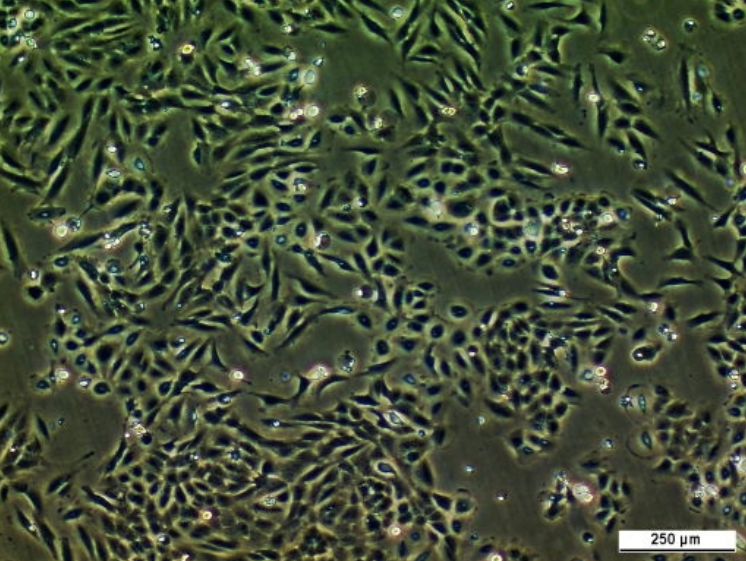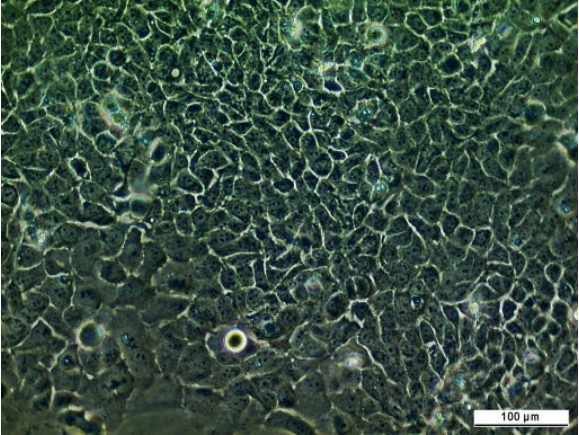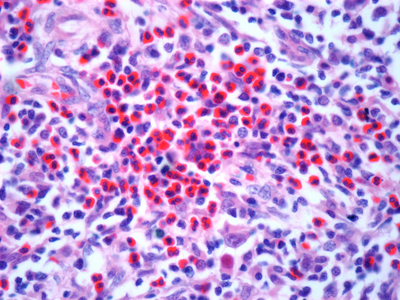
H376 Cell Line Product
[…] mutant p53, codon 266 exon 8, G to T; wild type K-, N-, and Ha- ras. H376 cells are non-tumourigenic in athymic nude mice by subcutaneous injection and on injection […]

[…] mutant p53, codon 266 exon 8, G to T; wild type K-, N-, and Ha- ras. H376 cells are non-tumourigenic in athymic nude mice by subcutaneous injection and on injection […]

[…] has mutant p53, codon 110 exon 4, G to A; the previously reported mutant Ha- ras status of this cell line: codon: 13, G to A, codon 61, A-G is […]
[…] mutation in codon 231, (ATG-GTC) and an A-T tranversion at cod 61 of the H- ras gene. These events appear to be remarkably similar to the sequence of changes seen […]
[…] which cycle between a GDP-bound inactive and a GTP-bound active conformation in a controlled manner. Ras GTPases are frequently mutated in cancer and so far only few experimental inhibitors exist. […]
[…] The encoded protein is a MAP kinase kinase kinase (MAP3K), which functions downstream of the Ras family of membrane associated GTPases to which it binds directly. Once activated, the cellular […]
Rab11a is a member of the Rab family of Ras-like small GTPases, which regulate membrane trafficking events (e.g. vesicle recycling). Regulates endocytic recycling, may exert its functions by interacting with […]
Karyotyping, STR profiling, ICC, IHC, Live cell imaging, TMEM, SNP, whole exome sequencing, TERT promoter Sanger seq, Western blot, and Ras activation assays.
[…] (HER3) and c-erbB4 (HER4). EGFR activation signals multiple downstream signalling cascade pathways such as the Ras – ERK, PI3-K – Akt, Jak – STAT and PKC pathways which help in […]

[…] signalling pathways to evade immune attacks. Oncogenic mutations to key signalling pathways such as PI3K/mTOR, RAS/RAF/MAPK, Wnt/beta-catenin, STAT3 and NF-kB play dual roles in promoting tumour growth while also mediating […]
[…] tumour microenvironment and tumour immune escape. These signalling pathways include STAT3, β-Catenin, PI3K/PTEN/AKT/mTOR, p53, NF-κB, RAS/RAF/MAPK, and KRAS/MYC. They can drive effective immunocyte exclusion and disfunction, as well as recruitment […]

Please note we may take up to three days to respond to your enquiry.
CancerTools.org uses the contact information provided to respond to you about our research tools and service. For more information please review our privacy policy.